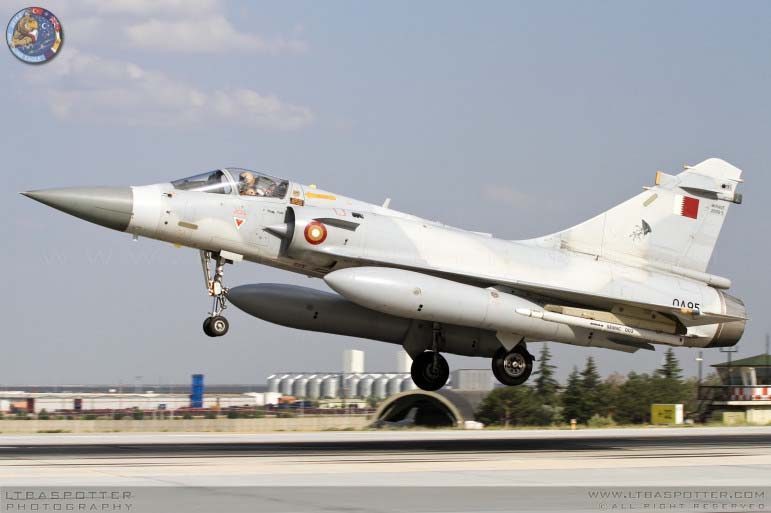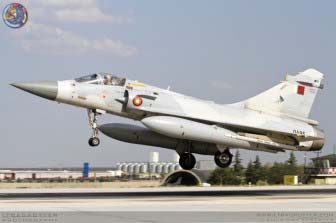
to reflect Qatar Airways has suspended flights to Yemen
Qatar has taken part in a Saudi-led military offensive against Houthi rebels in Yemen today, alongside several other GCC and Arab countries, in support of the deposed Yemeni president.
“The operation is to defend and support the legitimate government of Yemen and prevent the radical Houthi movement from taking over the country,” Adel al-Jubair, Saudi Arabia’s ambassador to the US, told reporters in Washington on Thursday.
Together with Qatar and Saudi Arabia, Bahrain, Kuwait and the United Arab Emirates are also participating in the military operation, which has so far resulted in the retaking of the Aden International Airport and Badr Camp, after “violent clashes,” QNA reports.
Some 17 civilians in Yemen have been killed in the airstrikes since the operation began, and three Houthi military commanders have reportedly been killed in the attacks, Al Jazeera reports.

The five states announced earlier that they made a decision to “answer the call of President (Abd Rabbuh Mansour) Hadi to protect Yemen and his people from the aggression of the Houthi militia.”
The Houthis hail from the Shia Zaydi community, which makes up around a third of Yemen’s population and is concentrated in the north, according to the Guardian.
During the rebels’ bid to take over power in Yemen, the president fled from the capital last month, and was based in the southern city of Aden until this week, when Houthi troops advanced in the area.
In a joint statement, the nations said the rebels were “not only menacing the security of Yemen, but also the security of the entire region as well as world peace.”
According to Al Arabiya, the UAE has deployed 30 fighter jets, Bahrain 15, Kuwait 15, Qatar 10 and Jordan 6 warplanes.
Speaking to Doha News, David Roberts, a lecturer at King’s College in London, said if accurate, this would be “the largest military operation” to date launched by the GCC.
Oman, which neighbors Yemen, is the only GCC country not participating in the offensive, dubbed “Decisive Storm.”
Support from other countries
Egypt, Jordan, Morocco and Sudan have also expressed their willingness to participate in the military action. A statement from Egypt’s state news agency said:
“There is coordination ongoing now with Saudi Arabia and the brotherly Gulf countries about preparations to participate with an Egyptian air and naval forces and ground troops if necessary.”
The US has also announced its support for the strikes, although it is not directly taking part in the military action.
“President Obama has authorized the provision of logistical and intelligence support to GCC-led military operations,” National Security Council spokeswoman Bernadette Meehan said in a statement.
The military measures also appeared to have mixed support in Qatar:
Qatar firepower
Qatar’s air strength effectively consists of 12 French-made Mirage 2000 planes that analysts have said were manufactured in the late 1990s, but have been modified several times since. The country has discussed buying 72 new combat aircraft since 2013.
The last reported action for Qatar’s Emiri Air Force was in September, when the US government said the country “played a supporting role” in an aerial campaign above Syria.

Media reports at the time stated that Qatar planes provided surveillance as fighter jets from the US, Bahrain, Jordan, Saudi Arabia and the UAE bombed ISIL targets.
Qatar never officially confirmed its role in the campaign, and has so far not publicly commented on its specific role in Yemen beyond carrying a joint statement with Saudi Arabia, Bahrain, Kuwait and the UAE saying it “expressed great concern” at the events in Yemen.
On its travel alerts page, Qatar Airways said this afternoon that it is temporarily suspending flights to Yemen due to the “security situation”.
Bahrain-based Gulf Air has also stopped flights to Sanaa for now, paring down the small number of international airlines in the region that are continuing to service the Yemeni capital.
Iran’s role
According to Roberts, the conflict in Yemen has Arab countries particularly worried because it would give Iran a chance to gain a foothold over the Arabian Peninsula through the Houthi rebels in Yemen, which are considered “Iranian proxies.”
Some analysts have said Iran’s support comes as it is locked in a struggle for influence in the Middle East with its regional rival Saudi Arabia.
This battle is primarily playing out in weak states such as Yemen and Syria, argued F. Gregory Gause, a senior fellow at the Brookings Doha Center. In a 2014 paper, he framed the conflict between Saudi Arabia and Iran as “The New Middle East Cold War.”
“Riyadh and Tehran are playing a balance of power game,” Gause wrote.
“The object of the cold war rivalry for Iran, Saudi Arabia, and other regional powers is not to defeat their regional rivals militarily on the battlefield. It is to promote the fortunes of their own clients in these weak state domestic struggles and thus build up regional influence.”
For its part, Iran has denied providing money or training to Houthi forces and condemned the aerial bombardment, according to Reuters.
Oil prices
Meanwhile, news of the bombing campaign helped bump up oil prices Wednesday over concerns that a widening conflict in Yemen could disrupt exports being shipped from the region.
“Yemen is not an oil producer of great significance but it’s located geographically and politically in a very important part of the Middle East,” Ric Spooner, a chief strategist at CMC Markets in Sydney, told Bloomberg.
Higher oil prices, which are indirectly tied to natural gas prices, will boost Qatar’s government revenues in the short term. However, security concerns surrounding shipping in the region could adversely affect Qatar’s LNG exports.
This morning, Qatar’s stock exchange took a nose-dive when trading opened before recovering some of its lost value. The country’s main index was down 0.8 percent shortly after noon.
dohanews.co




